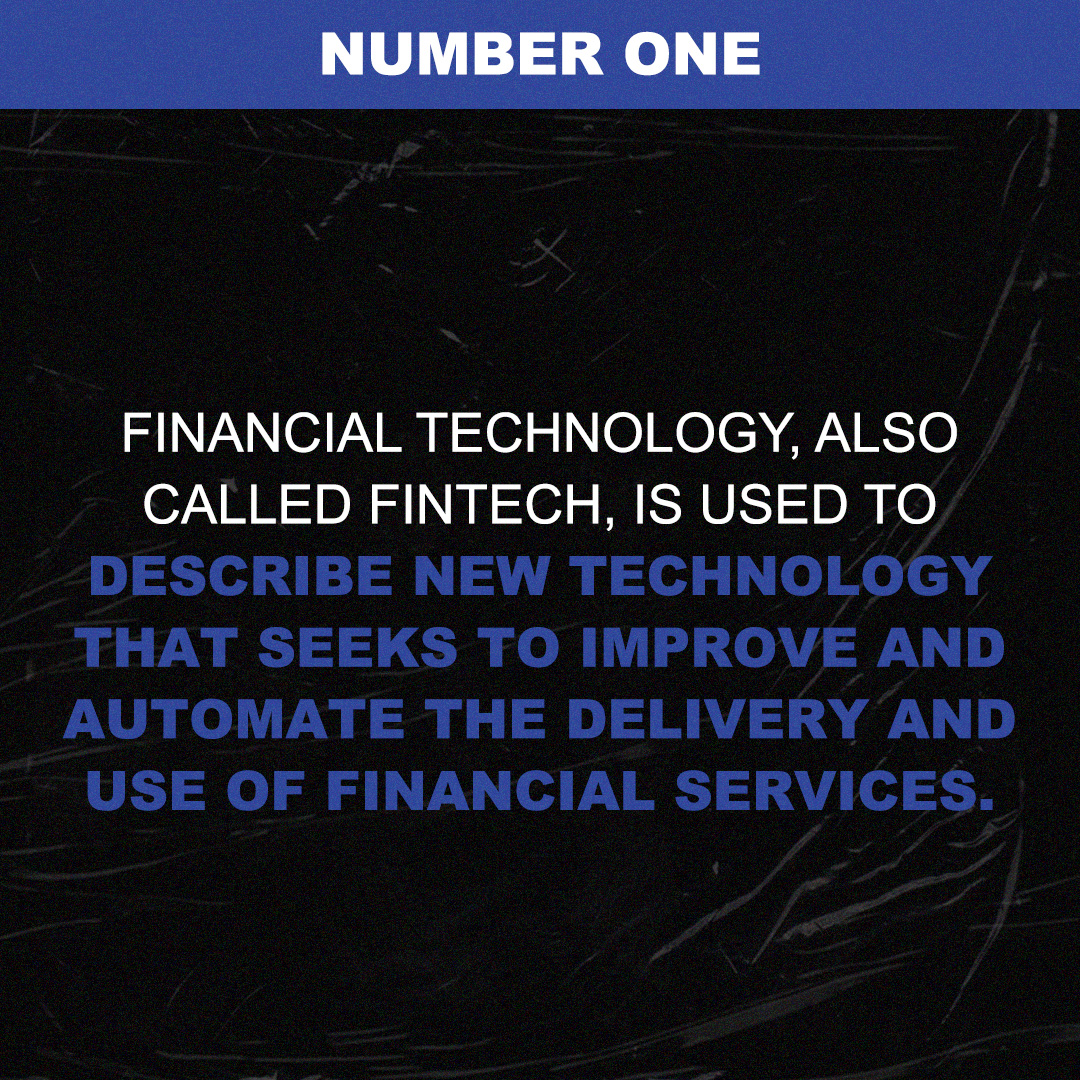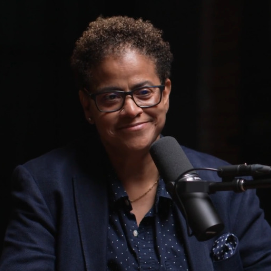As we buckle up for the recession, we know interest rates will rise and capital will be harder to access. So what the heck is FinTech? And how can it help New Majority entrepreneurs, for whom it costs at least $250,000 more to start the same exact businesses as their white peers?
Transcript:
It’s time for The Deep Cut, from Founder Hustle, the podcast series by, for and about the New Majority entrepreneur.
I am your host Melissa Bradley, founder of 1863 Ventures.
As a seasoned venture capitalist,I provide practical advice and tools to entrepreneurs and their ecosystems on how to grow and scale their businesses.
But I also realize that you can’t be successful without knowing what has come before, as well as preparing for what is yet to come. And that’s where The Deep Cut comes in.
Considering that over 50% of small businesses fail within five years, these bonus episodes are where we level up on the history that brought us to this moment and the current events that can impact the stability and growth of your business and shape your future. The Deep Cut is a power-up from Founder Hustle to help you on the journey from founder to CEO.
I am thrilled to report that entrepreneurship is alive and well.
While everyone enters small business ownership, due to their own unique circumstances, there are common themes in the motivation. One example that remains popular year to year and saw a surge post-covid is the desire that many people have to be their own boss. In fact, the number of people who went into small business due to their dissatisfaction with corporate America increased by 11% as evidenced by the great resignation of 2022. Another common reason people started their own small businesses was a desire to pursue their passion, which came in at 16%.
The last few years has also seen a share from the plurality of small business owners who are baby boomers to those who are Gen X. Right now, millennials make up 13% of small business owners. While only 1% are Gen Z or Zoomers,
I am very excited about the increase in people taking strides to secure their futures on their own terms. However, with this increase in new businesses, it’s important to understand where traditional start-up capital has come from, and the shift that’s happening due to FinTech.
Prior to last year, the 40-year decline in start-ups, had economists worried because startups are a key source of job growth, innovation and economic resiliency. They knew a reversal of this downward trend would contribute to a more dynamic productive economy. But who knew it would happen because of COVID? And who knew the role that women would also play in this upward trend.
The number of women’s small business owners has been increasing year over year, but last year we saw the greatest increase with 13% more business owners being female. And of course, the new businesses were overwhelmingly created not only by women, but also people of color. In 2020, 11% of new business owners were Black or African-American, compared with 3% in recent years, and 49% in women, compared with 27% in recent years. And as expected, women of color were resilient and turned our obstacles into opportunities.
The pandemic saw a wave of grant programs and new funds created, especially for those who have been overlooked and underserved. Unfortunately, many of these programs are in direct response to the initial failure of the paycheck protection program offered through big banks. The inability of banks to meet the demand of PPP dollars highlighted two major issues in capital access. First the inherent bias and racism in the financial system. And second, the distribution challenge, which is defined as the lack of a line banking systems and distribution centers or pipes that can actually reach and fuel our urban and rural communities. What does that mean? It means there’s not enough banks serving the communities where small business owners are thriving. Without access to banks and other traditional financial institutions, many new businesses turn to FinTech.
So what the heck is FinTech? Financial Technology, also called FinTech, is used to describe new technology that seeks to improve and automate the delivery and use of financial services. At its core, FinTech is utilized to help companies, business owners and consumers better manage their financial operations, processes and lives by utilizing specialized software and algorithms that are used on computers, and of course on our smartphones. The FinTech lenders play an important role in serving New Majority owners and businesses that needed small loans, but were less likely to receive them from other sources. These small establishments are critical in supporting vibrant commercial districts and have higher shares of female and new majority entrepreneurs.
When the FDIC surveyed under-banked Americans about why they don’t have a relationship with a financial institution, the top two reasons are they can’t afford deposit minus or simply don’t trust banks. Well, those may seem intractable systemic issues along comes FinTech. Demonstrating that in a few short years, some kind of financial relationship is possible. The increasing numbers of individuals who have not felt part of the mainstream banking system are turning to FinTech and bipoc entrepreneurs are no different. For example, Black-owned businesses turn to FinTech firms and more than twice the rate of those owned by white Hispanic or Asian people when applying for pandemic aid under the paycheck protection program, all according to research by the Federal Reserve Bank of New York.
Additionally, research shows about 25% of Black-owned firms apply for PPP loans through FinTech lenders. Why? Well we know that banks can take time to make loan decisions, time that many business owners do not have…Also Per our discussion on credit scores, many entrepreneurs are locked out of traditional loans are forced to pay higher interest rates because of their credit scores. The recent events have created a pathway for new lenders to meet the needs of small businesses, the fastest growing segment of employers in the United States.
Now, I’m not trying to advocate that we all go find a FinTech lender, but I am highlighting that the friction that exists for small businesses, especially those run by women and people of color, are at risk if a capital solution is not sustained as innovative solutions are necessary.
As a professor, I conducted a research study in 2019 that showed a cost at least $250,000 more for a Black or Latinx business owner to start the same exact business as their white male peer. These costs were direct and indirect. In terms of direct expenses, banks are allowed to charge higher interest rates, which often makes the cost of capital to be expensive for small business owners. The research also showed that entrepreneurs of color tend to churn through consultants four to seven times more than their white peers, which we know cost a lot of money, and a lot of time. These costs are often due to the low acceptance rates by entrepreneurs of color into popular accelerators that usually provide the money, access to free mentors, marketing credits and the like. No matter age, race, gender or other, for small businesses to thrive, we need to reduce the barriers to access to capital.
FinTech startups are disrupting the financial industry in big ways, they have several advantages that allow them to be more innovative and deliver services to customers more quickly and cost-effective than traditional banking institutions.
Data shows that FinTech has the potential to lower cost while increasing speed and accessibility, allowing for more tailored financial services that can scale. Over the last decade, worldwide, 1.2 billion previously unbanked adults gained access to financial services, and the unbanked population fell by 35%, primarily boosted by the increase in mobile money accounts. While globally, 1.7 billion adults still remain unbanked. FinTech is helping make financial services more accessible to an increasing number of people.
It’s left people wondering if it means the end of traditional banking. However, while I share the success of FinTech companies, let me level set. As a former bank regulator, it is highly unlikely that FinTech starters will replace traditional banks. First, consumers still prefer banks over startup companies to responsibly hold their money. This is because when it comes to our money, we wanna see where it sits and talk to folks in person or responsible for protecting it, despite the sometimes inconveniences of banking. Another factor to consider is the important exchange that actually takes place between banks and FinTech startups by partnering with one another. Banks gain technology and insights through mergers, acquiring start-up companies or mentorship programs. While FinTech Startup gain customer trust and market reach through such partnerships. Right now, it is more likely that both FinTech start-ups and banks will benefit more by coming together rather than competing in the market.
As we Buckle up for the recession, we know interest rates will rise and capital will be harder to access. Therefore, as a founder, do your research in diligence and see what capital providers make sense for you, your business and your current circumstances. It may just be a FinTech company that works for you.
Thank you for listening.
Don’t forget to subscribe to the Founder Hustle Podcast where you can hear thought provoking interviews along with our Deep Cuts.
Check us out at founderhustle.io.
You can find us on Twitter at @FounderHustle.
On Instagram we’re @_founderhustle.
And if you’re a Facebook person, we’re also there as Founder Hustle.
Founder Hustle and the Deep Cut are produced by Kinetic Energy Entertainment.
Edited and mixed by Anne Kane.
Social media producer is Misako Envela.
Music is Ratata by Curtis Cole.
And remember, knowledge is crucial, because knowledge is power.
Referenced in Today’s Episode:
- How FinTech Is Saving Black-Owned Businesses (Forbes, Nov 2021)
Credits:
- Founder Hustle and the Deep Cut are produced by Kinetic Energy Entertainment
- Edited and mixed by Ann Kane.
- Social media producer is Misako Envela
- Music is Ratata by Curtis Cole



